For Teens.
For Teens.
Menstruation is a natural part of a woman’s life. Your first period can be a little nerve racking, but it’s a natural part of growing up. It’s important to understand everything about your period so you can make the most informed choice for YOU!
We put this information together to help you understand what you need to know about periods, interesting facts about growing up and some fun life-hacks to make you an absolute period-pro in no time!
What happens when your body matures? Here’s an outline to explain the journey:
From ages 8-11:
The pituitary gland (a small gland at the base of your brain) begins to produce hormones that jump-start the oestrogen to your ovaries.
Hold up, whats ‘Oestrogen’?
Oestrogen is the hormone that is responsible for your menstrual cycle!
- You will grow taller.
- Hair will start to grow in new places (such as pubic hair).
- The shape of your body will change, your waist and hips become more defined, and your nipples will get bigger and a little sensitive.
- Unfortunately, you will also start to produce body odour.
From ages 12-14:
Oestrogen hormones increase and your ovaries begin to produce eggs.
Some girls may start to get their periods, but it’s different for everyone and it’s completely normal if you haven’t gotten your period yet.
- Having your period means it’s possible to have a baby.
- Your body will continue to develop and grow.
- Your breasts will grow and pubic hair will thicken.
- Vaginal discharge occurs and varies from white to yellow or clear (your body does this to keep the vagina clean).
- Skin can become oily and pimples may appear.
- With hormones increasing, you may notice mood swings.
From ages 15-18:
Most of you will have reached the end of puberty and your period will have established a cycle! If it hasn’t started yet and you’re concerned, don’t hesitate to go see your doctor.
If you would like to read about this more in depth, download our booklet ‘A Guide To Your Period.’ It’s got everything you need to know!
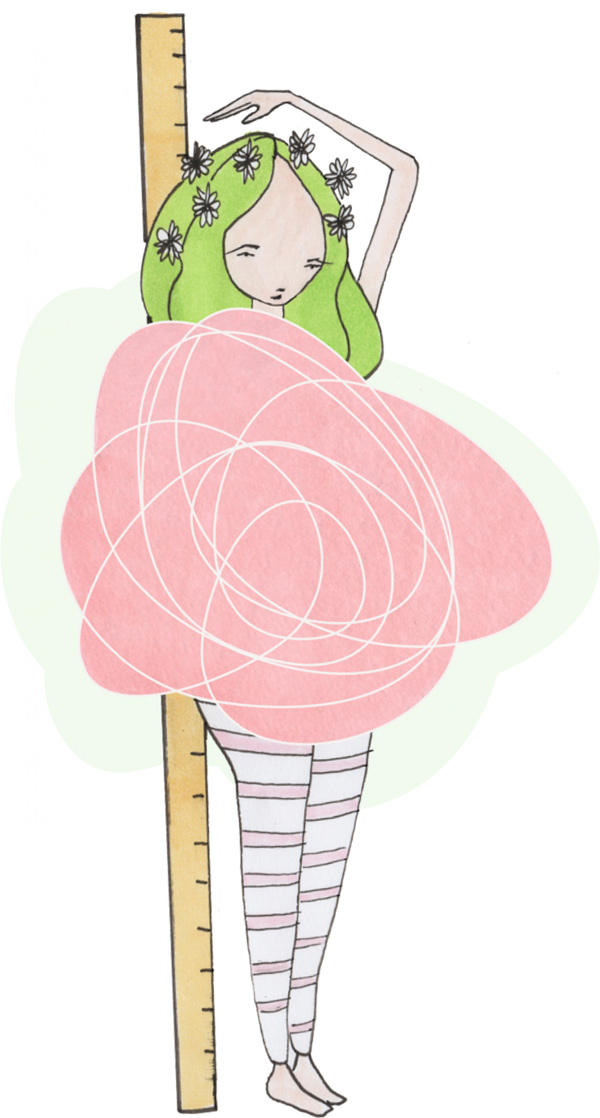
Don’t sweat it, you’re doing it right!
Puberty put simply is ‘growing up’- it’s when your body undergoes a transformation from girl to woman. There are many changes that happen during this time and it can feel a bit weird at first.
This usually occurs between the ages of 8-18 but is different for everyone, so try your best to hone in on yourself while puberty takes over. Even though you might feel like your body is going a tad crazy, your body is your own amazing temple and knows exactly what to do and when to do it.
Yes it can be a weird and awkward time, but believe us, it is totally worth it!
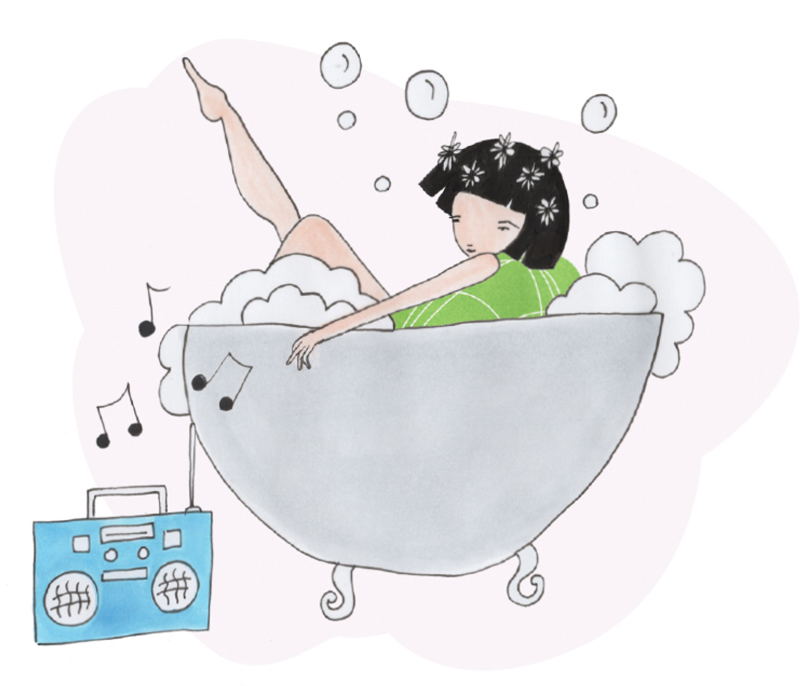
What Should You Expect?
Other than experiencing all these weird changes and being a bit shy to talk about them, your first period is usually very light; it might be only a few red spots or brown discharge.
Your first period can be a bit irregular too but before you know it, your body will settle into its own rhythm and you will soon get used to your own menstrual cycle.
It is completely normal to feel tired, body aches, cramping and food cravings too. Oh also, you’ll probably start to experience some mood swings too. These are all completely normal things to experience when you have your period.
If you would like to read about this more in depth, download our booklet ‘A Guide To Your Period.’ It’s got everything you need to know!
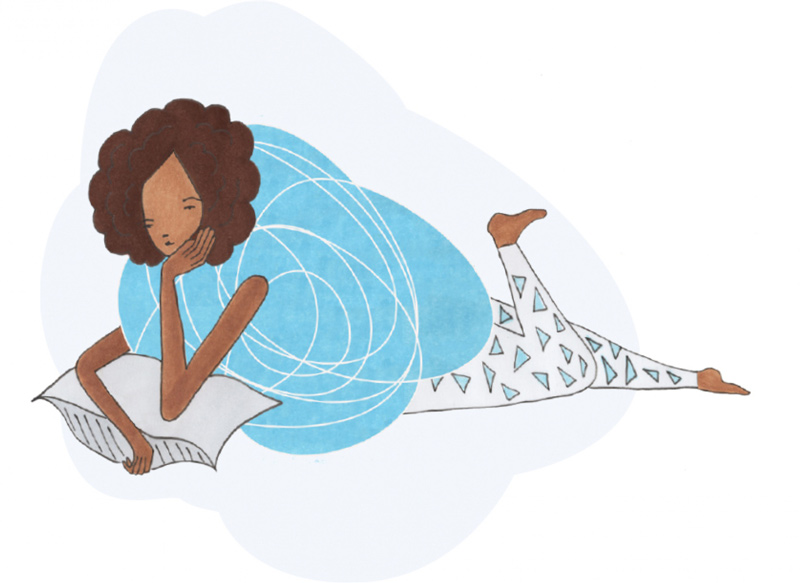
The series of changes that happens to your body in the lead up to your period is known as the ‘menstrual cycle’. It’s through this cycle that human reproduction is made possible.
The diagram to the right shows a basic breakdown of the female anatomy. It’s very important to become familiar with your body!
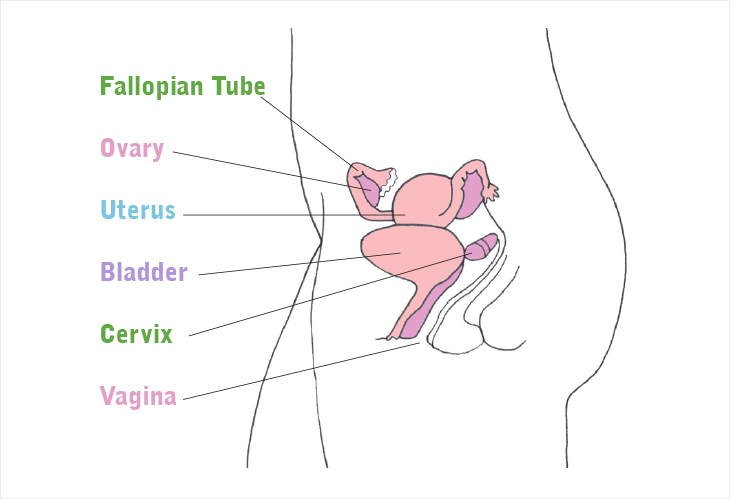
This is how it works:
Stage 1: During ovulation an egg is released from the ovaries and travels through the fallopian tubes towards the uterus.
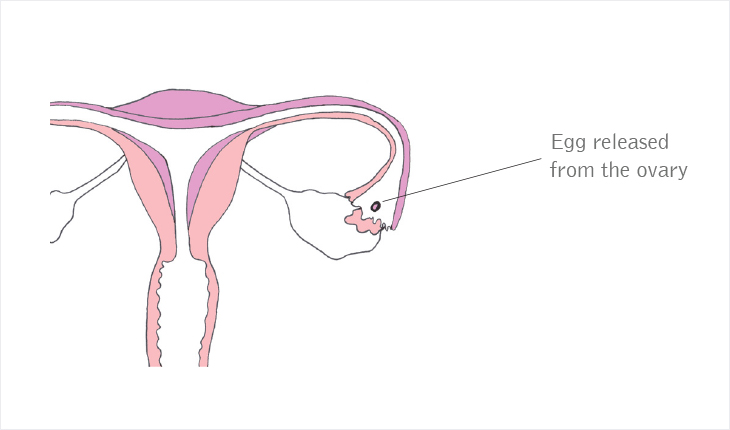
Stage 2: In preparation for fertilisation, the lining of the uterus increases in thickness and fills with blood.
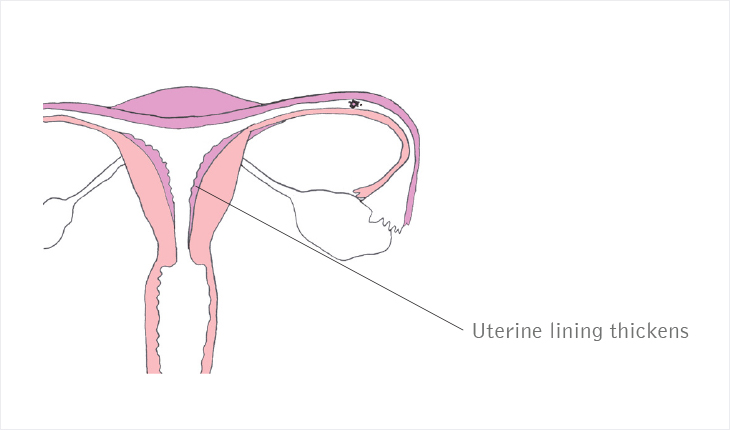
Stage 3: If the egg is not fertilised and pregnancy doesn’t occur, this lining breaks down and leaves the body. This is when you start bleeding and it’s the bleeding that’s called menstruation and it usually lasts between 2 to 7 days.
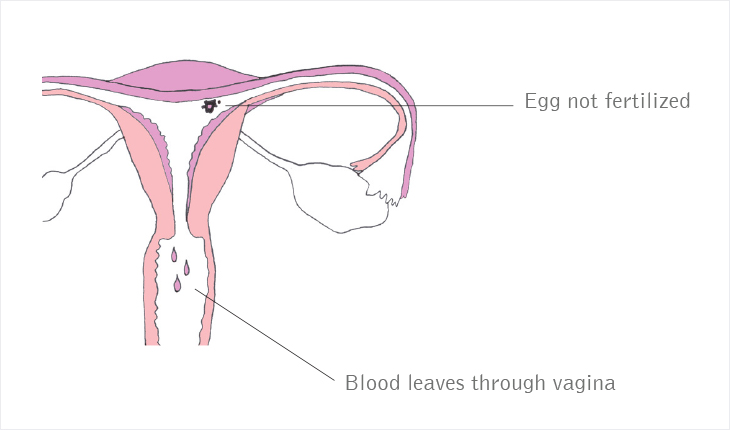
Stage 4: The lining of the uterus then prepares itself for the next cycle.

